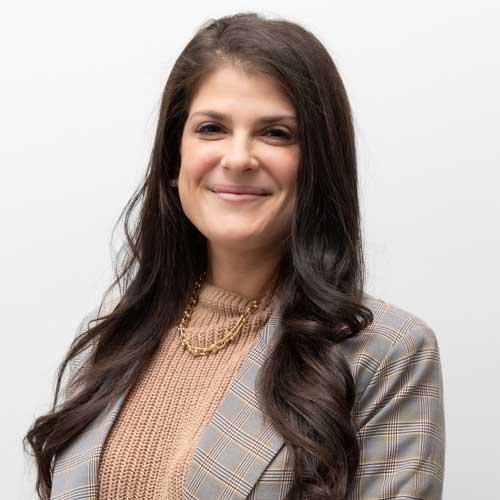Alcohol addiction is a chronic illness that demands more than willpower or outpatient treatment. Higher-level treatment may be needed for severe symptoms or unsuccessful sobriety efforts. Here comes Connecticut inpatient alcohol rehab.
Patients get 24/7 therapeutic assistance, a structured rehabilitation environment, and a respite from daily stresses and triggers in inpatient therapy. These programs are appropriate for those who require extensive treatment to overcome alcoholism and start a clean life. Personalized treatment and community connections make local rehab facilities more effective for Greenwich and its surrounding populations.
What Is Inpatient Alcohol Rehab?
Inpatient rehab is a residential program that allows individuals to live on-site at a treatment center while receiving comprehensive care. Unlike outpatient rehab in Greenwich or Intensive Outpatient Treatment Program Greenwich, inpatient programs offer round-the-clock supervision, medical support, and a structured daily schedule that typically includes:
- Medical detox
- One-on-one therapy
- Group counseling
- Psychiatric care for co-occurring disorders
- Holistic services like yoga and mindfulness
The goal of inpatient alcohol rehab in CT is to help patients stabilize, gain insight into their behaviors, and begin rebuilding their lives in a supportive, sober setting.
When Inpatient Rehab Is the Right Choice
Inpatient rehab is best suited for individuals who:
- Have experienced multiple relapses
- Struggle with moderate to severe alcohol dependence.
- Need medical detox and 24/7 monitoring.
- Have a co-occurring mental health disorder (also known as dual diagnosis)
- Lack of a supportive home environment for outpatient care.
Rehab centers in CT offer programs that are highly beneficial for individuals requiring both medical and mental health treatment. This makes them an excellent choice for long-term rehabilitation success.
Benefits of Inpatient Alcohol Rehab in Connecticut
1. Safe Medical Detox
Detoxing from alcohol on your own may be harmful and even deadly. Detox centers in Connecticut provide medically supervised detox with drugs and professional experts to help with symptoms and lower the risk of consequences.
2. Dual Diagnosis Support
A significant number of people in recovery also have anxiety, depression, or PTSD. In Connecticut, dual diagnosis therapy and mental health treatment facilities ensure that both problems are addressed simultaneously, which increases the likelihood of long-term success.
3. Personalized Treatment Plans
At leading Connecticut addiction treatment centers, care plans are tailored to each patient’s history, health status, and recovery goals. This individualized approach leads to more effective outcomes than generic, one-size-fits-all programs.
4. Structure and Routine
Inpatient rehab creates a stable daily structure that helps people reestablish healthy habits. Unlike IOP Greenwich or outpatient rehab Greenwich, there are fewer distractions and more accountability.
5. Peer and Community Support
Having other people in recovery live with you helps you build a strong support network. Shared experiences and group therapy may make people feel more connected and less alone, which can assist with addiction.
6. Holistic Healing Options
Many holistic recovery centers in Greenwich offer services that go beyond talk therapy, including:
- Yoga and meditation
- Art and music therapy
- Nutritional counseling
These therapies help promote emotional, mental, and physical wellness throughout the recovery journey.
Why Choose a Local Rehab Center in Greenwich, CT
Greenwich rehab centers make it easier to recover by providing you with access to therapists and community support in your local area. Patients find it easier to get follow-up care, outpatient care, and family support throughout their recovery.
Greenwich alcohol and addiction treatment centers tailor their services to the needs of their patients and the resources available in the area, which improves participation and retention in treatment.
Transitioning from Inpatient to Outpatient Care
The recovery journey does not end with discharge from inpatient rehab. Many individuals continue treatment through:
- Intensive outpatient program CT
- Outpatient drug rehab in Greenwich
- Addiction recovery in Greenwich support groups
- Ongoing therapy and wellness check-ins
This step-down model, offered at many rehabilitation centers in CT, ensures a safe and supported transition into independent living while maintaining structure and accountability.
Is Inpatient Alcohol Rehab Covered by Insurance?
Most rehabs in Connecticut will take private insurance and Medicaid. Detox, inpatient stays, treatment, and preparing for aftercare are all things that are usually included. To find out what benefits are available and how much you’ll have to pay out of pocket, it’s best to call a Connecticut addiction treatment center immediately.
Conclusion: Take the First Step
If you are addicted to alcohol and need further treatment, Connecticut inpatient alcohol rehab might help. Inpatient treatment can improve your life by providing 24/7 support, personalized care plans, and services for both your physical and emotional well-being.
If you need drug rehab or addiction treatment facilities in Greenwich or the area, assistance is closer than you think. Contact us now to change your future.

Alexis earned both a B.S. in Psychology and a B.S. in Family and Child Sciences from Florida State University and an M.A. in Marriage and Family Therapy from the University of San Diego. She holds licenses in Marriage and Family Therapy in Florida, Connecticut, and Massachusetts and is also a member of the American Association for Marriage and Family Therapy (AAMFT).
Alexis works with families, couples, children, and groups and also has a sub-specialty in addiction and recovery. She utilizes an integrated, systemic approach to counseling; empowering people to define what is not working for them in their lives and to discover the possibilities for making life work. In doing this, clients are guided towards identifying their strengths, accessing their resources, tapping into their potential for success, and taking action toward achieving their desired goals.
Alexis also has extensive experience in the administration of behavioral health organizations. She has developed, built, and supervised several facilities encompassing all levels of care while leading them through state licensing and The Joint Commission accreditation process.

